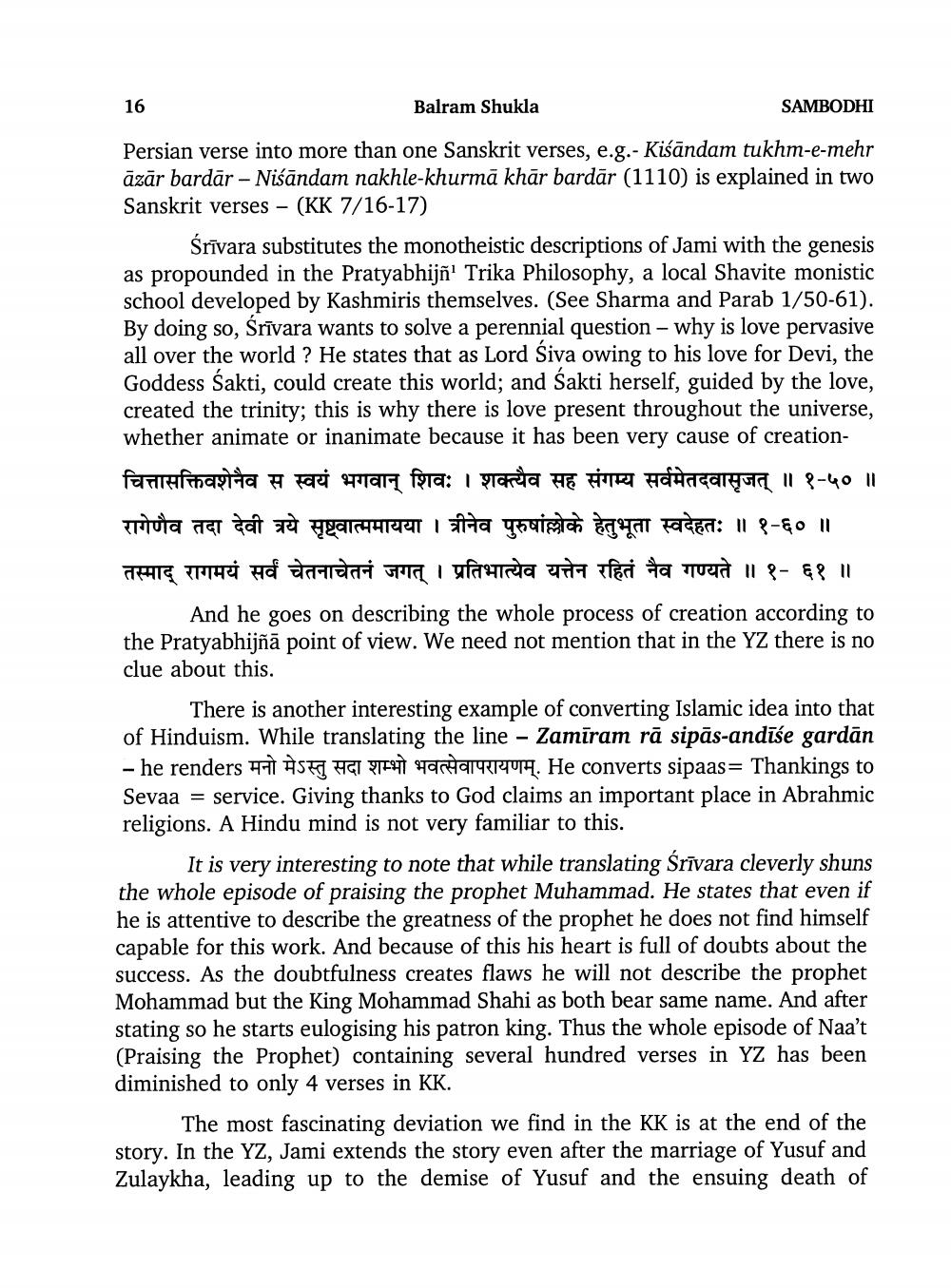________________
16
Balram Shukla
SAMBODHI
Persian verse into more than one Sanskrit verses, e.g.- Kiśāndam tukhm-e-mehr āzār bardār - Niśāndam nakhle-khurmā khar bardār (1110) is explained in two Sanskrit verses – (KK 7/16-17)
Śrīvara substitutes the monotheistic descriptions of Jami with the genesis as propounded in the Pratyabhijñ' Trika Philosophy, a local Shavite monistic school developed by Kashmiris themselves. (See Sharma and Parab 1/50-61). By doing so, Śrīvara wants to solve a perennial question - why is love pervasive all over the world ? He states that as Lord Siva owing to his love for Devi, the Goddess Sakti, could create this world, and Sakti herself, guided by the love, created the trinity; this is why there is love present throughout the universe, whether animate or inanimate because it has been very cause of creationचित्तासक्तिवशेनैव स स्वयं भगवान् शिवः । शक्त्यैव सह संगम्य सर्वमेतदवासृजत् ॥ १-५० ॥ रागेणैव तदा देवी त्रये सृष्ट्वात्ममायया । त्रीनेव पुरुषांल्लोके हेतुभूता स्वदेहतः ॥ १-६० ॥ तस्माद् रागमयं सर्वं चेतनाचेतनं जगत् । प्रतिभात्येव यत्तेन रहितं नैव गण्यते ॥ १- ६१ ॥
And he goes on describing the whole process of creation according to the Pratyabhijñā point of view. We need not mention that in the YZ there is no clue about this.
There is another interesting example of converting Islamic idea into that of Hinduism. While translating the line - Zamīram rā sipās-andīše gardān - he renders S HI 774977antalar01. He converts sipaas= Thankings to Sevaa = service. Giving thanks to God claims an important place in Abrahmic religions. A Hindu mind is not very familiar to this.
It is very interesting to note that while translating Śrīvara cleverly shuns the whole episode of praising the prophet Muhammad. He states that even if he is attentive to describe the greatness of the prophet he does not find himself capable for this work. And because of this his heart is full of doubts about the success. As the doubtfulness creates flaws he will not describe the prophet Mohammad but the King Mohammad Shahi as both bear same name. And after stating so he starts eulogising his patron king. Thus the whole episode of Naa't (Praising the Prophet) containing several hundred verses in YZ has been diminished to only 4 verses in KK.
The most fascinating deviation we find in the KK is at the end of the story. In the YZ, Jami extends the story even after the marriage of Yusuf and Zulaykha, leading up to the demise of Yusuf and the ensuing death of




